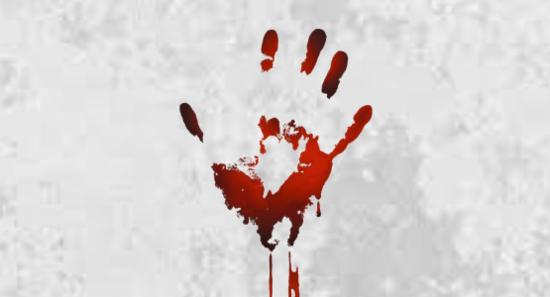.webp)

Common misconceptions regarding Police powers
Colombo (News 1st): Here are some common misconceptions on Police powers;
1. A single Police Officer CAN stop you on the road!
Misconception:
A single police officer cannot stop you due to a suspected traffic violation, request to see your license or National ID card and/or seize your license or take any other step, such as carry out a breathalyzer test or charge you with an offense. A Police Officer has the right to stop you as per the Section 162 of the Motor Traffic Act. It says: "the driver of a motor vehicle shall obey all verbal directions or signals given by a police officer in the execution of his duty, to stop or reverse the car, to slow down, turn back, to pass on such side or to keep to such line of traffic, as may be indicated by the police officer." Furthermore, under Section 56 of the Police Ordinance with regard to the duties and liabilities of police officers, it has been mentioned as follows: “Every police officer shall for all purposes in this ordinance contained be considered to be always on duty, and shall have the powers of a police officer in every part of Sri Lanka. It shall be his duty.(a) To use his best endeavors and ability to prevent all crimes, offenses, and public nuisances' (b) To preserve the peace (c) To apprehend disorderly and suspicious characters; (d) To detect and bring offenders to justice; (e) To collect and communicate intelligence affecting the public peace; and (f) Promptly to obey and execute all orders and warrants lawfully issued and directed to him by any competent authority.
The Motor Traffic Act provides more specific powers, allowing a police officer to stop a vehicle (S.162), request for your license [(S.135 (1) and (1C)] (or any other identification) and even withhold it if he suspects you of committing an offense.2. It’s NOT only the Traffic Police that can stop you!
Misconception:
Only a 'traffic control' Police Officer has the authority to request anything more than your NIC when you are behind the wheel. The Traffic Police is purely an administrative distinction within the Police. Neither the Police Ordinance nor the Motor Traffic Act makes a distinction between which division of police officers are allowed to exercise these powers, and the powers are generally conferred on all police officers. Any officer in uniform has the authority to stop you and examine any document - including the NIC.3. A single Traffic Police Officer CAN press charges against you!
Misconception:
A single traffic Police Officer can never press charges against you. He must have a witness if he does so. That's why you always find 'two' Police Officers together. There is no law which states that two officers are needed for the same purpose. (Refer to above point #1 "the driver of a motor vehicle shall obey...")4. Police Officers CAN use firearms!
Misconception:
Police is a peace controlling force, not an armed force. They are prohibited by law to carry anything more than a baton. So, if a Police Officer pulls a gun on you, you can sue him. A Police Officer has the authority to use firearms if necessary to maintain law and order in the country. According to the IGP Circular 843 dated 28th March 2010, the use of firearms has been limited for the police officers but it has not been prohibited.5. The MYTH surrounding “Balloon Tests” or “Breathalyzers”
Misconception:
If a Police Officer claims that you are drunk, you have the full right to ask for a 'balloon test', if they do not have it in their possession on the time of your request, you can go. You are not allowed to leave at such an instance. Section 151 of the Motor Traffic Act outlaws and creates an offense for people to drive under the influence of drugs or alcohol. It also empowers police officers to stop and search motor vehicles where they suspect that a driver is under the influence of alcohol or drugs. A police officer may subject the suspected driver to a test to assess whether the driver has consumed alcohol or drugs. Alternatively, the officer may produce that driver before a Government Medical Officer (GMO) for inspection. There is no legal provision that allows you to compel a police officer to conduct a breathalyzer or “balloon test” if you are asked to pull over on suspicion of driving whilst being intoxicated– mere suspicion is sufficient for a police officer to require you to stop and to be able to check you in this regard. If you fail to comply with the police officer’s order to stop and be searched, you are committing an offense. Furthermore, if you don’t comply with a request to submit yourself to a breathalyzer test or a GMO test, this evidence will be used against you in Court as you have created the presumption that you ARE under the influence of drugs or alcohol.6. Police Officers CAN enter your home or work premises without a Court order in writing!
Misconception:
Police Officers cannot enter your home or work premises without a Court Order in writing. You have the fullest right to ask for it. If they try to enter by force, you have a right to object it. In Section 25 of Criminal Procedure Code, it has been clearly stated that any Police Office in uniform has the authority either to enter or to inspect a house or a place of business at any time without a Court order. It says: "If ingress to such place cannot be obtained under section 24 it shall be lawful in any case for a person acting under a warrant, or in any case in which a warrant may issue but cannot be obtained without affording the person' to be arrested an opportunity of escape, for a peace officer to enter such place and search therein, and in order to effect an entrance into such place to break open any outer or inner door or window of any place whether that of the person to be arrested or of any other person, if after notification of his authority and purpose and demand of admittance duly made he cannot otherwise obtain admittance" - police.lk7. A Traffic Police Officer CAN seize your driving license without stating the crimes you committed!
Misconception:
A traffic Police Officer cannot seize your driving license until he fully states the crime you have committed and the relevant penal code violation. If he is unable to do so you are free to go. A Police Officer has the authority to request the driving license so as to verify whether the driver is holding a valid driving license for the relevant vehicle. It has been clearly stated in Section 135 of Motor Traffic Act that the driving license should be submitted forthwith if a Police Officer requests a driver to do so. It says that the driver of a motor vehicle shall always carry his driving license on his person or in the motor vehicle and shall, on demand made by Police officer, forthwith produce the license and permit it to be inspected. Section 135 (4) of the Motor Traffic act notes that a traffic Police Office has the authority to seize your license and into his custody after issuing a temporary license for the driver. It is not possible to interdict a police officer after carrying out a disciplinary inquiry against such an act.8. A male Police officer CAN stop and search a woman, within certain limitations!
Misconception:
(For women) If you are asked to be body-checked, it's your right to get it done by a Female Police Officer. If they don't have one in present, you can refuse to comply. The lady drivers out there do have a misconception that a male police officer cannot request for their NIC, Name, address or even stop them. But ladies - they have the right to request you for the information and seize any document. As mentioned earlier, the law does not draw any such distinction. A female Police officer is not a necessity when obtaining information from any woman. But, when taking a woman into custody or inspecting a woman it should be performed only by a woman. She should not necessarily be a female police officer. It has been explained in Section 30 of the Criminal Procedure Code as follows. “Whenever it is necessary to cause a woman to be searched, the search shall be made by another woman with strict regard to decency”
9. A speed detection device is NOT necessary to fine or prosecute you!
Misconception:
If a Police Officer is about to levy a fine or prosecute you for speeding, you have a right to request to have a look at the speed indicated in the speed detection devices. Speed detection devices in most of the Police Stations are out of order and the speeding drivers are caught by hazarding a guess under the pretext of using the device. A Police Officer has the authority to take a driver into custody if he is speeding recklessly. At such instances having a speed detection device is not compulsory to take such measures. Having Said That; It is important to remember that the Law of Sri Lanka gives Police officers the right to stop, search and even detain you. It is our responsibility conversely, as law-abiding citizens of this country, to assist public officers in the discharge of their duty. It won’t do to hide under misconceptions if an offense has been committed by you.Our advice to you is to be responsible.
The above information has been obtained from the official Sri Lanka Police website (police.lk
).Other Articles
Featured News





.png )

-785316_550x300.jpg)





















.gif)